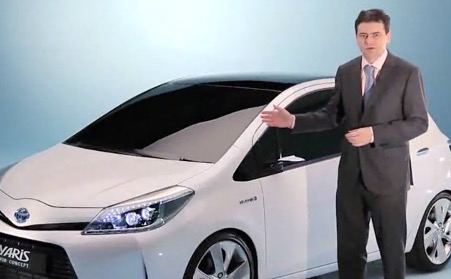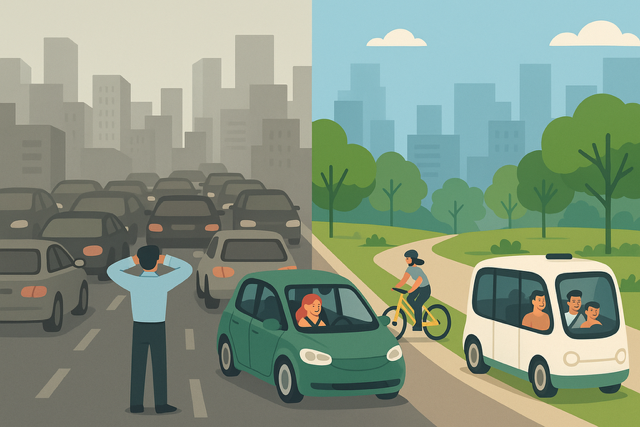I am in panic.
I can’t sleep. The wave is rising—clearly visible from afar. Yet so many act as if nothing is coming.
In 1994, during a visit to Alcatel, I heard that phones would become personal—not tied to places. That by 2000, 4 million people in France would use mobile phones. It convinced me and I reported it and people laughed. “Just a gadget,” they said.
By 2000, there were over 10 million users. And that was only the beginning. What started as “just a gadget” became the foundation of a global transformation—how we live, work, and connect.
Years later, in Brussels, I built at Toyota Europe a fact-based case for hybrid vehicles replacing diesel at that time dominant in Europe: superior economics, customer appeal, and environmental logic. Once again: skepticism. Rejection. Denial. But we did it. Thanks Arashima-san.
And yet again, the wave came. And swept everything with it. Hybrid is now dominant in Europe. Diesel is marginal.

This is the pattern. This is the cycle.
We stay trapped in outdated mindsets, prisoners of linear thinking in a world shifting exponentially.
In The Coming Wave, Mustafa Suleyman shows us how every breakthrough—no matter how obvious in hindsight—was once denied or dismissed. The printing press was banned in the Ottoman Empire. The internal combustion engine was first used for water pumps. Electricity, the automobile, the Internet, the smartphone—all were resisted by the “candle makers” and “carriage drivers” of their time.
A French government report once concluded the Internet had “no future and no application.”
But when innovation brings massive, systemic benefits—it is unstoppable. Resistance always gives way to adoption, then acceleration.

Now, we stand on the edge of the next wave: autonomous, shared mobility.
Lower cost. Greater safety. Freed-up urban space. Unmatched convenience, more freedom. A revolution in how we use the second-largest household expense—and eliminate one of the biggest sources of time and space waste in our daily lives.
And we’ve only invented 1% of what’s possible.
I said it publicly at a conference in 2016—and later reaffirmed it in my blog: 2025 would be the inflection point.
Even early mobile phones? Thought to be for hospital patients to listen to music.
Perhaps it will now be 2026. But make no mistake—the wave is already here.
Thousands of autonomous vehicles are operating daily, not in trial mode but in commercial service.
They are being used up to ten times more than personal cars, with ten times fewer accidents.
From navigating the congested night traffic of Chinese megacities to safely handling the chaotic streets of San Francisco, autonomous systems are performing reliably in complex, diverse, and demanding environments.
And people love them. They come back. They trust them.
Usage is growing. Cost is falling—dramatically.
This is not a pilot. This is not a forecast. This is happening now.

Yet denial persists.
We still cling to yesterday’s models—oversized, overdesigned cars that sit idle 95% of the time. Streets remain dangerous. Cities stay congested.
The denial morphs: “It won’t work.” Then, “It won’t scale.”
Next: “It won’t change everything.”
But we know Amara’s Law:
“We tend to overestimate the effect of a technology in the short run and underestimate it in the long run.”
We are entering that long run now. And the benefits will be exponential.
Yet experts, consultants, and policymakers keep projecting as if the car market will remain unchanged through 2030, 2040, or 2050.
Let me be clear: The mobility sector will fundamentally transform. And for those who don’t get prepared, it will collapse.
Not into nothing—but into new objects, new business models, new services, and new ways of living. Collaboration, private public partnerships, circular economy, shared models, regular updates with human at the center…
If we fail to prepare, we risk leaving millions unready and unsupported—as if pretending this transformation isn’t happening will somehow delay it.
🚨 The wave is coming. Please, get prepared.
If not, I will remain in panic.